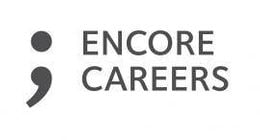Figure Out if You Can Afford a Second Career
The right balance of expenses and income is vital
It would be nice if there were a single, simple “calculator” you could use to determine whether or not you can afford to transition to a second career.
Alas, financial calculators are only as useful as the assumptions that go into them. Typically, the more assumptions that go into a model, the higher the odds that one faulty input will geometrically impact the output — for the worse.
So, what to do? Think Occam's razor. When faced with a choice, opt for the simplest solution. Here are three straightforward, powerful steps you can take to help figure out how to finance your second career:
Use a Simple Mental Financial Framework
Think of your income as a pie that is divided up into four slices: taxes, savings, needs and wants. For the average working American, taxes chew up about 25 percent of income. In an ideal world, you'll also be setting aside 15 percent of your income for savings. That leaves 60 percent for everything else.
Typically, a “balanced” pie has roughly 45 percent of your income going toward needs and 15 percent going toward wants. (Note the symmetry of 15 percent being set aside for both savings and wants. Essentially, you are balancing the desire to enjoy today with the need to save and invest for the future.)
If the overall size of your income pie is shrinking, the dollar amounts for each of those slices — including the “everything else” category — is going to have to be reduced as well. This simple mental framework is the key to making sure you are not living beyond your means as you head into an encore career.
Get the Big Things Right
For most people, five areas of spending will consume more than 50 percent of their lifetime income: home, car, children, education and retirement. For anyone making a big life change, two classic danger areas are continuing to spend more than you can afford on housing and transportation.
A rough rule of thumb is that you can comfortably afford a home with a total purchase price of up to three times your annual household income.
If you already own a home, ideally your all-in housing costs (mortgage, insurance, property tax, upkeep, etc.) will add up to 30 percent or less of your annual income. For cars, the rough rule is you can comfortably afford an automobile with a total purchase price of up to 30 percent of your total income. If you already have a car or take public transportation, your goal is to keep total transportation costs (car payment, insurance, gas, parking, tolls and subway/train fare) to less than 10 percent of your gross income.
If you will be spending more than this amount in your encore career income, that's a red flag. I am making the assumption that you have already passed through the peak “kids and education” spending stages. If you are currently juggling credit card debt, as so many people are these days, you'll also want to work to pay that off as quickly as possible to give yourself increased flexibility in your “wants” and “needs” slices.
Know ‘Your Number’
A classic concern about taking the plunge into an encore career is whether or not doing so will prevent you from ever being able to retire. Retirement itself is a rapidly evolving concept. Many of us may joyfully choose to work well into our 80s — or beyond. However, having a clear-cut understanding of “your number” — that is, how much in savings you'll need to maintain your desired lifestyle without having to earn additional income — can help you decide how comfortable you feel about pursuing an encore career.
Your number is a function of many factors: your age, gender, expected Social Security benefit, predicted investment returns and assumptions about future tax rates, to name but a few. There are hundreds of online calculators you can use to identify how big your nest egg needs to be to maintain your lifestyle without an income stream. They can also help you back into how much you should be striving to tuck away each month to reach that goal.
It would be nice if you could put your finances on the money version of the chicken rotisserie “set it and forget it” machine. Alas, life gives us all twists and turns.
To successfully manage your encore career on a slimmed-down salary, you'll want to repeat the above three steps on an annual basis. If your earnings, spending or investment returns take any significant detours, this annual wake-up call will get you back on track.
Financial literacy advocate Manisha Thakor is the coauthor of Get Financially Naked and On My Own Two Feet.
This article was originally published by Encore.org on Dec 28, 2009.


